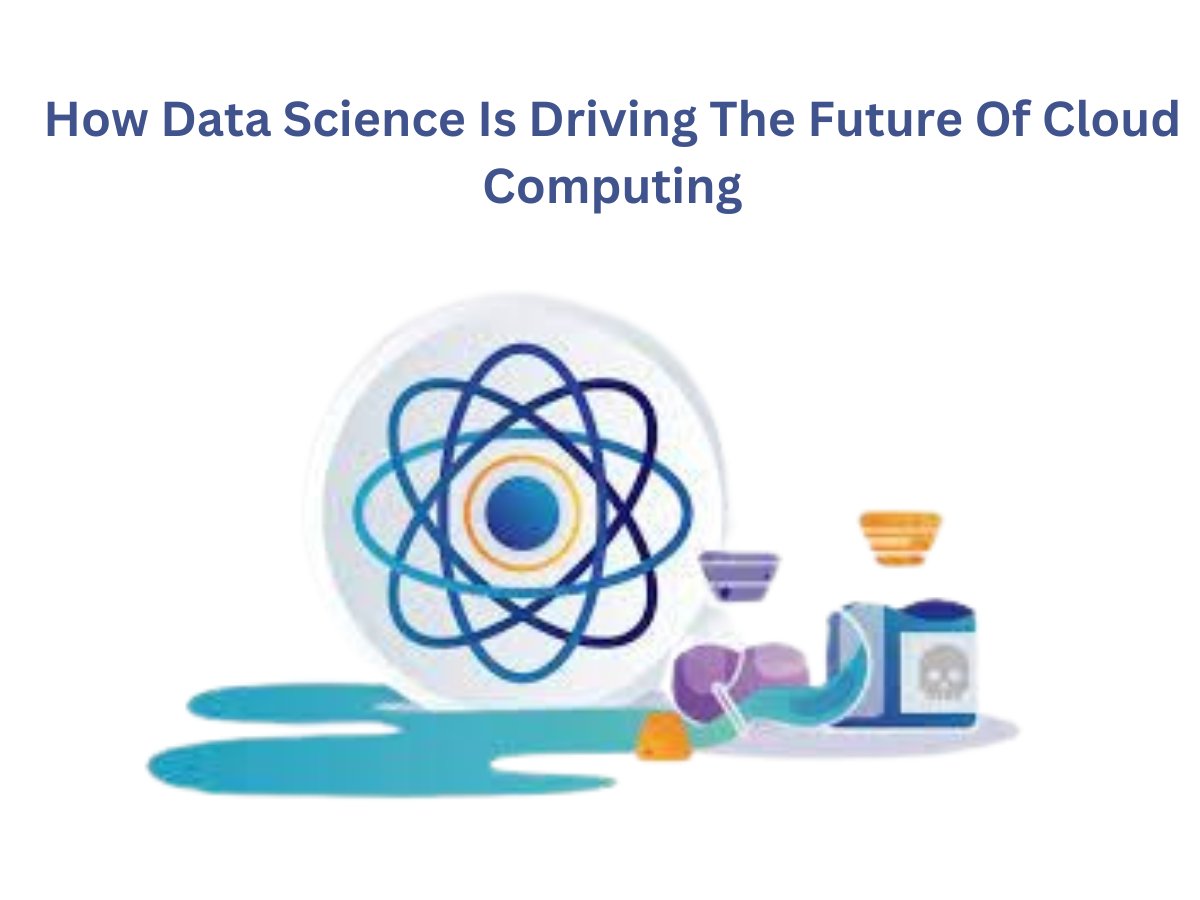How Data Science Is Driving The Future Of Cloud Computing
Data science is revolutionizing the way we interact with cloud computing. By leveraging data-driven automation, data analysis, machine learning, and AI tools, cloud computing is becoming more efficient and secure.

Introduction
Data science is revolutionizing the way we interact with cloud computing. By leveraging data-driven automation, data analysis, machine learning, and AI tools, cloud computing is becoming more efficient and secure. Data science is a critical technology that powers the future of cloud computing. It involves using various algorithms and techniques to extract insights from large datasets, allowing organizations to gain valuable information about customer behavior and make better decisions for their business. With the help of cloud computing, companies can efficiently store and manage vast amounts of data, which they can quickly access and analyze in real-time.
How Data Science Is Driving The Future Of Cloud Computing
Data science is driving the future of cloud computing with its ability to process vast amounts of data quickly and accurately. Cloud computing is revolutionizing the way businesses store, manage, and analyze data. Cloud-based solutions offer cost-effective, scalable data storage, and analytics solutions, which are becoming increasingly popular due to their flexibility, scalability, and quicker processing time compared to in-house solutions. Data Science is a rapidly growing field and Kelly Technologies Data Science Training in Hyderabad is the perfect place to get started.
Data science plays an important role in the cloud computing landscape by providing more efficient and cost-effective solutions for businesses. Machine learning algorithms can help process large amounts of data quickly, while artificial intelligence (AI) provides insights into how this data can be used more effectively. Predictive analytics is also helping improve security across the cloud by allowing organizations to identify potential threats before they become a problem.
The emergence of cloud computing has also led to new opportunities for careers in data science and analytics as businesses look to increase their capabilities in this area. With access to larger datasets than ever before, organizations are able to use these datasets for deeper insights into customer behavior or market trends that can be used for decision-making purposes. Additionally, scalability within the cloud means that businesses don't need huge investments up front when it comes to processing power or storage capacity. These costs can scale up as needed over time without having a major impact on budgets or resources.
Overall, it is clear that data science is driving the future of cloud computing by providing more efficient ways of storing, managing, and analyzing large datasets at scale. This creates opportunities for faster innovation as well as improved insights into customer behavior or market trends that can be used strategically by organizations today.
Data-Driven Automation In Cloud Computing
Data Science has had a significant impact on cloud computing and is driving the technology's future. Automation in cloud computing is becoming increasingly popular because it offers many benefits, such as cost savings, improved efficiency, and faster response times. Data science plays a pivotal role in driving automation in cloud computing by enabling businesses to store extensive amounts of data in a cost-effective and secure manner.
Data Science brings Cloud Computing a great opportunity for businesses, allowing them to analyze data quickly, efficiently while minimizing the costs of hardware and software. It also provides access to real-time insights, which can be used for informed decisions. Additionally, Data Science with Cloud Computing provides a platform for predictive analytics, machine learning, and artificial intelligence that can automate processes and improve operational efficiency.
Moreover, Data Science with Cloud Computing supports better collaborative decision-making within organizations by providing users with access to real-time data from various sources, which can be securely shared across multiple devices. This makes it easier for teams to work together on projects while still maintaining control over their data sets. Finally, Data Science with Cloud Computing automates processes, improving operational efficiency across all departments within an organization, leading to increased productivity at lower costs!
AI And Machine Learning Algorithms In The Cloud
The demand for high-performance cloud computing has increased due to the growth of data science and machine learning algorithms. AI and ML are being used more frequently to solve complex problems with data sets and real-time analytics. This has led to AI playing an essential role in driving performance in cloud computing.
Customers are looking for more flexible and scalable cloud architectures, leading to greater optimization in cloud computing resources through AI and predictive analytics to manage workloads efficiently. Major infrastructure advancements have also enabled faster implementation times, cost reduction, and improved security in data storage.
To stay competitive, data scientists need to keep up with changes in cloud computing, such as understanding how ML algorithms can analyze big data efficiently while considering cost efficiency, governance policies, and security measures when working with platforms like AWS.
By combining AI solutions with reliable, robust technology provided by cloud platforms, businesses can gain a competitive advantage with data-driven decision-making processes. As the fields of cloud computing and machine learning continue to advance, businesses will have access to powerful tools that further unlock potential by leveraging big data analytics solutions powered by ML algorithms in the cloud environment.
To Conclude
This article in the Prshine should have given you a clear idea about. Data science is revolutionizing cloud computing, creating endless opportunities for businesses to leverage its potential. Machine learning algorithms, data-driven automation, and predictive analytics make it possible for organizations to access large amounts of data quickly and accurately while saving costs on hardware and software. AI models can provide valuable insights into customer behavior and market trends that businesses can use strategically. As we enter a new era of digital transformation, the possibilities for data science in cloud computing are limitless.


 kumarrajay.me@gmail.com
kumarrajay.me@gmail.com 








